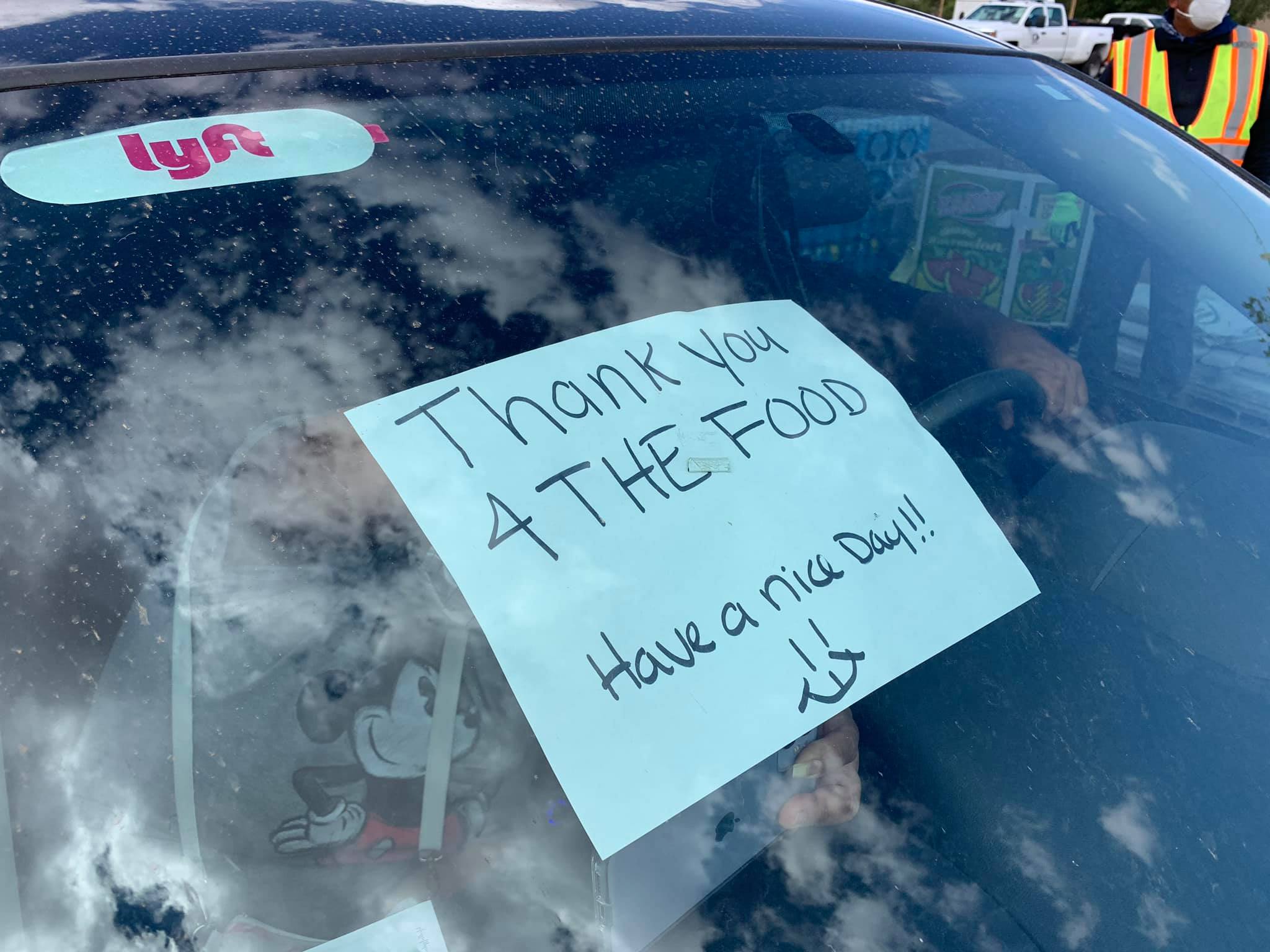
- Details
- By Native News Online Staff
WINDOW ROCK, Ariz. — On Saturday, the Nez-Lizer Administration partnered with the Winslow Indian Health Care Center to distribute food and essential supplies to 571 families in the communities of Winslow, Leupp, and Dilkon to help keep people home and safe during the COVID-19 pandemic that has hit the Navajo Nation hard.
Meanwhile, the Navajo Department of Health, in coordination with the Navajo Epidemiology Center and the Navajo Area Indian Health Service, reported on Saturday 36 new COVID-19 positive cases for the Navajo Nation and two more deaths. The total number of deaths now totals 470 as of Saturday. Reports indicate that 6,810 individuals have recovered from COVID-19. 84,537 people have been tested for COVID-19. Multiple health care facilities were unable to report the number of recoveries and tests completed for Saturday’s report due to technical issues with the reporting system. The total number of COVID-19 positive cases is 9,293.
Navajo Nation COVID-19 positive cases by Service Unit:
- Chinle Service Unit: 2,254
- Crownpoint Service Unit: 775
- Ft. Defiance Service Unit: 718
- Gallup Service Unit: 1,500
- Kayenta Service Unit: 1,281
- Shiprock Service Unit: 1,454
- Tuba City Service Unit: 870
- Winslow Service Unit: 437
* Four residences with COVID-19 positive cases are not specific enough to place them accurately in a Service Unit.
On Saturday, the state of Arizona reported 1,054 new cases of COVID-19, while New Mexico reported 155 new cases, and Utah reported 376 new cases. The Navajo Nation’s 32-hour weekend lockdown will begin on Saturday, Aug. 8 at 9:00 p.m. (MDT) until Monday, Aug. 10 at 5:00 a.m. All businesses will be closed for the duration of the weekend lockdown.
“The overall numbers of positive COVID-19 cases for the entire states of Utah, New Mexico, and Arizona decreased today. That’s a good sign that the curve is beginning to flatten, but that does not mean it is safe to travel. Our contact tracers are finding that more of our Navajo Nation residents are contracting COVID-19 when they travel to cities such as Phoenix and Albuquerque and others. The safest place to be is home here on the Navajo Nation. Everyone must remain diligent about staying home as much as possible, wearing a mask, practicing social distancing, washing your hands, and avoiding large crowds,” Navajo Nation President Jonathan Nez said.
More Stories Like This
Native News Weekly (August 25, 2024): D.C. BriefsUS Presidents in Their Own Words Concerning American Indians
Native News Weekly (December 14, 2025): D.C. Briefs
Wounded Knee Massacre Site Protection Bill Passes Congress
Two Murdered on Colville Indian Reservation
Help us defend tribal sovereignty.
At Native News Online, our mission is rooted in telling the stories that strengthen sovereignty and uplift Indigenous voices — not just at year’s end, but every single day.
Because of your generosity last year, we were able to keep our reporters on the ground in tribal communities, at national gatherings and in the halls of Congress — covering the issues that matter most to Indian Country: sovereignty, culture, education, health and economic opportunity.
That support sustained us through a tough year in 2025. Now, as we look to the year ahead, we need your help right now to ensure warrior journalism remains strong — reporting that defends tribal sovereignty, amplifies Native truth, and holds power accountable.
 The stakes couldn't be higher. Your support keeps Native voices heard, Native stories told and Native sovereignty defended.
The stakes couldn't be higher. Your support keeps Native voices heard, Native stories told and Native sovereignty defended.
Stand with Warrior Journalism today.
Levi Rickert (Potawatomi), Editor & Publisher

